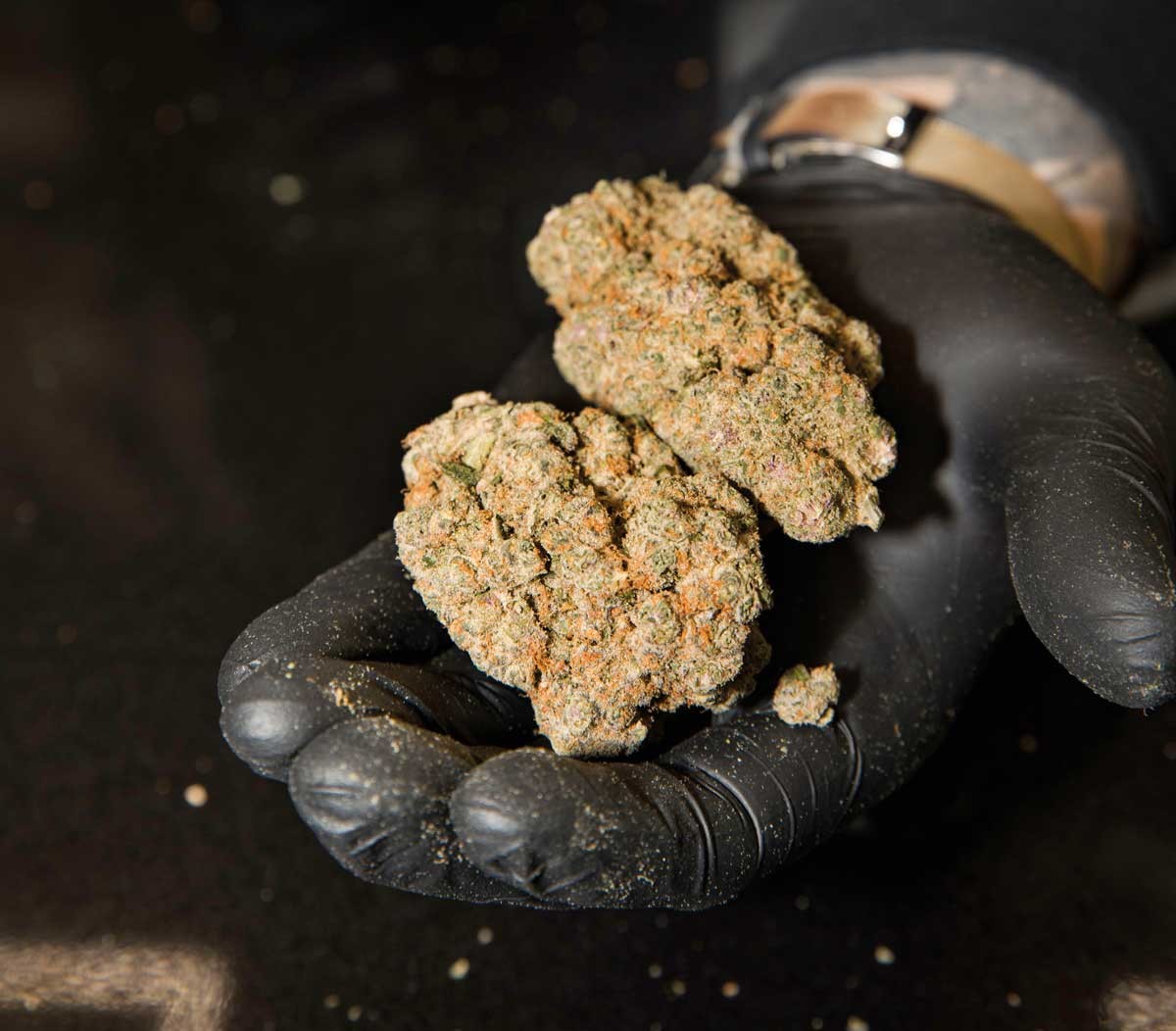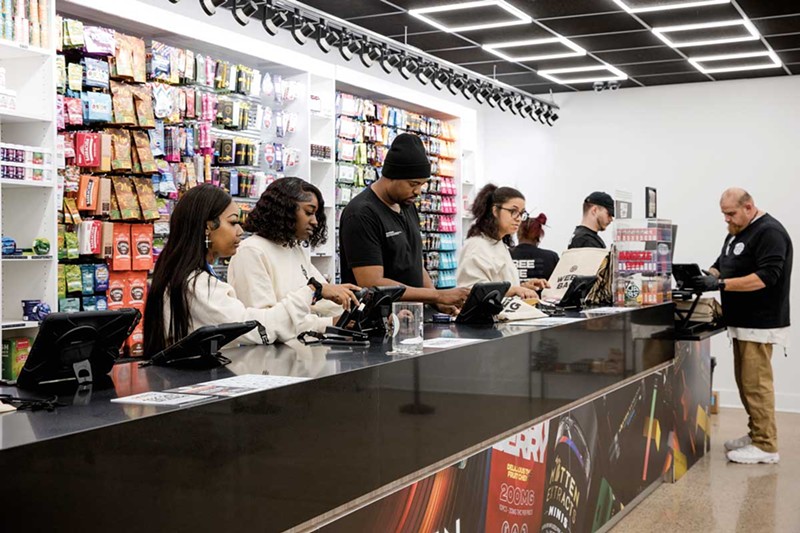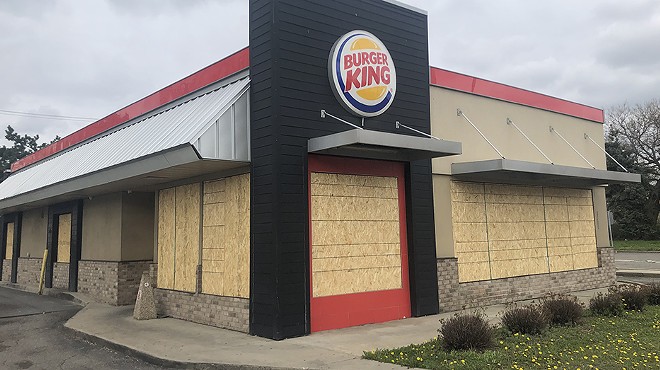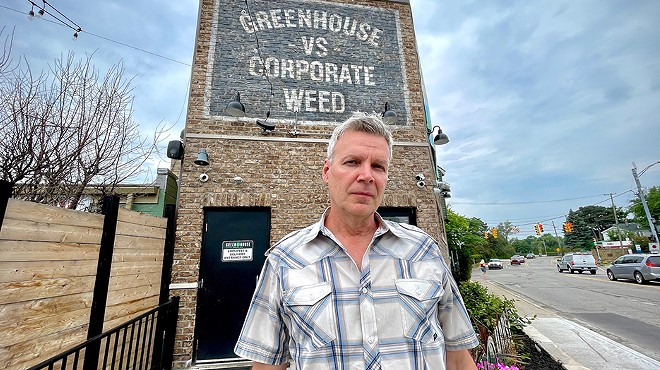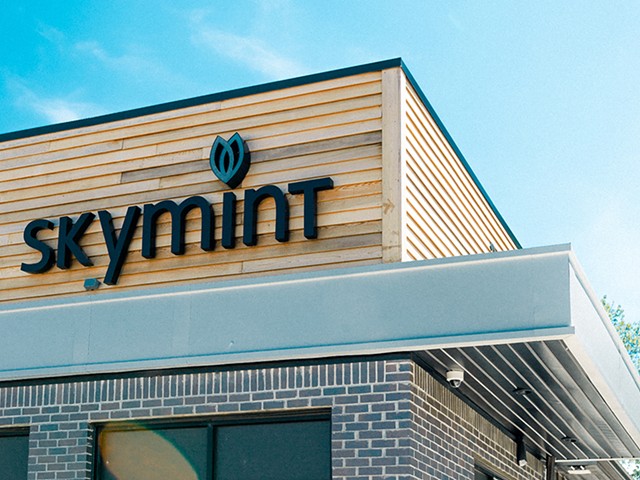As cannabis sales continue to hit new highs in Michigan, communities that embraced legal weed are reaping the rewards with an influx of jobs, tax revenue, community benefits, and renovated buildings.
The cannabis industry has seen tremendous growth since the state’s first adult-use dispensaries opened in December 2019, with sales hitting unprecedented levels year after year.
In 2023, licensed dispensaries rang up a record $3.06 billion in sales, a 25% increase over 2022.
The surge in demand for legal weed has not only transformed the landscape of the state’s economy but also revitalized communities that have allowed recreational cannabis businesses to open.
One of the most significant impacts is the cascade of tax revenue from cannabis sales. With a 10% excise tax on recreational cannabis sales, hundreds of millions of dollars have gone to local governments, schools, and roads since 2020.
The state recently sent more than $87 million to 269 municipalities and counties as part of their share of excise taxes in 2023. That includes 99 cities, 69 townships, and 71 counties.
The communities and counties each receive more than $59,000 annually for every licensed cannabis dispensary and microbusiness located within their jurisdictions.
For cities that have embraced the industry, the revenue turned into a windfall.
The city of Detroit, which is bouncing back from bankruptcy, leads the state with the most adult-use dispensaries at 33. The state sent the city a $1.95 million check for excise taxes last month.
The predominantly Black city is taking a progressive and unique approach in how it spends the funds. While some cities are using the money to supplement their general fund budget, Detroit is planning to finance initiatives aimed at addressing “the negative impact resulting from disproportionate enforcement on Detroiters during the years cannabis was illegal,” says Kim James, director of the city’s Office of Marijuana Ventures.
Abundant studies have shown that marijuana prohibition has overwhelmingly targeted Black communities with stiff jail sentences and excessive fines. One of the most detrimental impacts of marijuana convictions is the loss of employment opportunities.
The city is focusing on using the money for business development opportunities for marginalized groups, entrepreneurial programs for young people, and housing development for people affected by prohibition.
In Hazel Park, which received more than $590,000 for 10 dispensaries last month, city officials say the influx in revenue prevented a cut in services. As recreational marijuana sales were becoming legal, the city’s pension bill was rapidly rising, like those in other communities. The city used the excise tax revenue to help meet its pension obligations.
“If we weren’t able to offset some of those increased costs from cannabis monies, we would have had to make cuts in services or pass those costs on to taxpayers,” Hazel Park city manager Edward Klobucher tells Metro Times. “It’s a huge benefit. It absolutely preserved services.”
With 26 dispensaries, Ann Arbor received $1.54 million in excise tax revenues last month. Lansing got $1.42 million with 24 dispensaries, and Grand Rapids received $1.36 million in 23 dispensaries.
In addition to new tax revenues, cities also have reached agreements with cannabis businesses to provide community benefits — a perk that no other industry provides.
In Detroit, the city launched the “Good Neighborhood Plan,” a benefits initiative that all adult-use licensees are required to take part in. The plan focuses on ensuring that cannabis businesses are supporting Detroiters by doing things like ensuring that at least 50% of their full-time staff is Detroit residents or have a prior controlled substances record, purchasing and displaying a Detroit-based resident-owned brand, donating to a Detroit-headquartered nonprofit organization, or helping fund the Homegrown Social Equity Fund, which is aimed at initiatives for people from communities that have been disproportionately impacted by marijuana prohibition.
So far, the city has raised more than $250,000 for the Homegrown Social Equity Fund to provide business grants to social equity cannabis entrepreneurs.
“Detroit has made sure that ownership of recreational dispensaries is diverse, but support for the social equity businesses is a continuing priority because the competition is intense, so we are invested in making sure these businesses can thrive,” James tells Metro Times.
In Hazel Park, a city that is becoming increasingly popular among young professionals and families, dispensaries donate time and money for a variety of projects. One of the most popular is the Hazel Park Promise Zone, which provides college scholarships to all students who attend the city’s public school district. Cannabis businesses have become a major donor to this initiative.
“There is no reason for someone who goes to Hazel Park schools not to go to college when they are done with high school,” Klobucher says.
Dispensaries are also a major funding source for the Hazel Park Junior Vikings, a program that enhances recreational opportunities for students.
When a young girl was recently sick with cancer, cannabis businesses came through with “significant donations,” Klobucher says.
“They have been some of the best partners around,” Klobucher says of the cannabis businesses. “We hope to continue with their level of success. It’s good for the city of Hazel Park.”
In addition to providing new tax revenue and community benefit agreements, cannabis businesses are also occupying previously abandoned buildings, contributing to the elimination of blight.
“Once in a while we hear criticism in the community that the last thing we need is another dispensary,” Klobucher says. “When those dispensaries come in, they invariably occupy a vacant, often blighted building, or an underused building, and they have definitely helped to improve the appearance of the city.”
Dispensaries, growers, and processing plants are also providing a lot of good-paying jobs.

STIIIZY, a popular cannabis brand with dispensaries in Ferndale, Kalamazoo, and Battle Creek, made headlines when it hired about 200 laid-off Burger King workers last year after a franchise owner closed 26 restaurants, mostly in metro Detroit. The workers started at $16 to $17 an hour at STIIIZY’s manufacturing facility in Orion Township, where the company makes a popular line of vape pods, infused blunts, and pre-rolls.
Those wages are typical at cannabis businesses.
“At STIIIZY, we mean it when we say we give to grow,” Daysi Garcia, social equity and impact specialist for STIIIZY, tells Metro Times. “That’s why, in 2023, STIIIZY partnered with five different Michigan nonprofits that serve communities disproportionately impacted by prohibition and enforcement. To date, we have committed $5,000 thus far, and these investments have extended to Kalamazoo and over eight counties in south Michigan.”
This month, STIIIZY hosted two virtual hiring events and interviewed more than 75 candidates on a single day.
The company, like many other cannabis businesses in Michigan, also donates money and food to communities. In November 2022, STIIIZY partnered with Forgotten Harvest, a nonprofit that donates and grows food for lower-income people in metro Detroit, and served more than 200 families through a pop-up-style pantry.
In April 2023, the company teamed up with the South Michigan Food Bank to assemble, box, and sort pantry items that were distributed across eight counties.
In the summer of 2023, STIIIZY joined Sisters in Business and Black Wall Street Kalamazoo, two groups focused on business opportunities for people of color, to provide two $5,000 grants for people to attend the Black Entrepreneurship Training Academy (BETA), a five-month program to help Black entrepreneurs.
Puff Cannabis, which has 10 dispensaries in Michigan, focuses on giveaways. At each location, the Madison Heights-based company distributes about 250 turkeys for Thanksgiving.
For Christmas, Puff Cannabis has an annual giveaway called “Jackets for Joints.” Every person who brought in a new children’s coat for people in need received a five-pack jar of infused Jeeter prerolls, which is valued at $50. Some of the stores each gave away as many as 300 coats, says Nick Hannawa, a partner and chief legal counsel for Puff Cannabis.
“It makes a huge impact,” Hannawa tells Metro Times.
Puff Cannabis also donates to numerous veteran organizations and gives money to each city where they have a dispensary to “use for whatever they deem necessary,” Hannawa says.
In the summer of 2022, the cannabis company donated money to resurface basketball courts at Grant Park in Utica.
In addition to its giveaways, Puff Cannabis is helping communities by renovating ramshackle buildings to use for its dispensaries. Some of the renovations cost up to $300,000, Hannawa says.
“We’re taking buildings that are in bad shape, fixing them up, and making them brand new,” Hannawa says. “That makes a huge impact in a city because you are raising taxes and fixing up the buildings.”
Hannawa says residents and municipalities that were scared of legalized marijuana are starting to come around because of the benefits that dispensaries are bringing to other communities.
“I think it’s changing people’s minds,” Hannawa says. “People understand we are not bringing all this crime and craziness. It’s not ‘reefer madness.’ People are welcoming it. City councils are saying we would rather have a dispensary that is giving back to the community and renovating buildings. They are seeing the benefits.”
The Greenhouse of Walled Lake, the first adult-use dispensary in Oakland County, is credited with helping transform the small community where it’s located.
“Thanks to Greenhouse of Walled Lake and the two other dispensaries in our city, we are able to supplement both our police and fire departments,” Walled Lake city manager Dennis Whitt says. “The dramatic improvements in downtown Walled Lake are benefiting the residents and businesses, in addition to very cool recreational activities, which improve Walled Lake families’ quality of life in our wonderful community.”
In addition to donating to veterans and Aim High School, an alternative school for students with special needs, The Greenhouse of Walled Lake has also been responsible for revitalizing the area around its dispensary. The owner, Jerry Millen, helped renovate the nearby Banks-Dolbeer-Bradley-Foster farmhouse, an 1833 landmark in Walled Lake that served as a depot on the Underground Railroad to help enslaved people reach freedom.
For three consecutive summers, The Greenhouse of Walled Lake hosted its Summer Kickoff Park, which features Oakland County’s largest fireworks display, barbecue, animal adoptions, and other entertainment. This summer, Millen plans to include a concert.
Millen also set up a tent to help a local Girl Scouts troop sell cookies outside the dispensary.
In May 2023, The Greenhouse of Walled Lake hosted a free event with rapper-turned-country singer Jelly Roll, which drew about 5,000 people.
Without a place to buy good coffee in town, Millen also built a coffee shop with freshly made doughnuts using a vintage-style French LeMont truck.
“I’m trying to bring businesses back to Walled Lake,” Millen tells Metro Times.
At Christmas time, The Greenhouse spent between $30,000 and $40,000 on gifts for children in need. Millen even dressed up as Santa.
Walled Lake officials were so impressed with Millen’s civic pride that they appointed him to serve on the community’s Downtown Development Authority.
“Now that we’ve been successful, it’s been great to give back,” Millen says. “Making a kid smile or helping a father out, it means a lot. It’s the coolest feeling when you can go out and help.”

